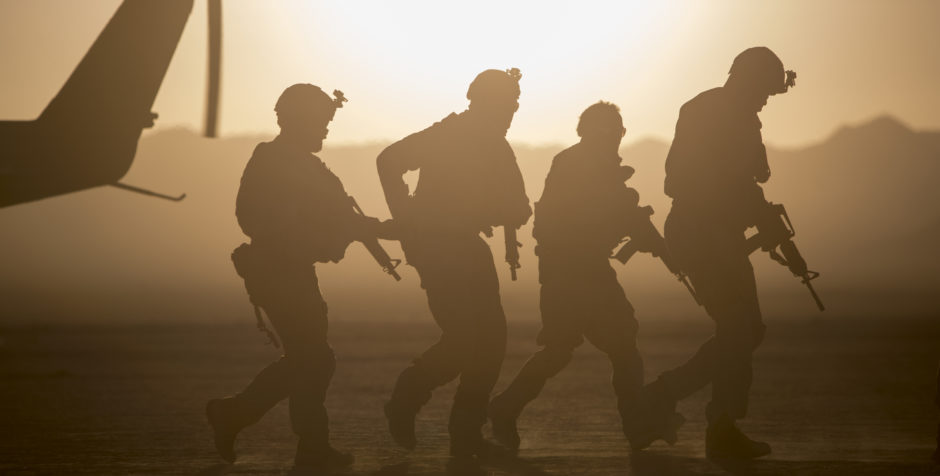National Security in a Complicated World
Sixteen years after the attacks of 9-11, with threats from multiple jihadist groups, the resurgence of the Russian Federation, a marked military buildup in China, an emboldened Iran, and the nuclear ambitions of North Korea—the arena of national security has never been more important and more complex. The threat landscape is intricate and multi-faceted. The task of protecting the people and vital interests of the United States does not allow even momentary respite or carelessness. The world is, indeed, a complicated and dangerous place. The situation demands the very best efforts from those charged with the responsibility of keeping us safe.
How do we respond to aggressive Russia who ignores international demands that it relinquishes its illegal annexation of Crimea, undermines the legitimate government in Ukraine, continues to attempt interference in democratic elections around the world, and seeks to diminish the influence of the United States in the Middle East?
What is the appropriate response to China’s illegal claims to islands in the South China Sea, the flaunting of its latest anti-ship missiles capable of sinking a U.S. aircraft carrier, and the establishment for the first time a military base outside of China, in Africa? China’s duplicitous and unhelpful stance regarding North Korea only complicates this conundrum.
How do we counter an Iran, flush with cash received from the prior Administration, a country that is perfecting its short and medium-range ballistic missiles, establishing a footprint in Iraq and Syria, and is on its way to ultimately possessing nuclear weapons?
How serious are we about denying North Korea the capability of launching a nuclear missile that could strike the west coast of the United States? Can we rally a complacent world to cut off all aid and trade to North Korea to eliminate the apparent only other option of military force, with its short-term result of mass casualties on the Korean Peninsula?
What is the remedy for the global malignancy of radical Islamist terror? How do we deny safe havens and territory to groups like ISIS, al-Qaeda, and the Haqqani Network—while protecting the American homeland? Do we increase our military presence in Afghanistan, prop up what is a weak and, at times, corrupt Afghan government? Or do we cut our losses and leave?
“There is no magic bullet—but there is effective buckshot,” writes M.L. Cavanaugh in an article for the Modern War Institute. In other words, there is no one political doctrine, diplomatic policy or single military strategy that can address these threats to our national security. Cavanaugh advocates a three-dimensional response: First, be willing to engage the global situation by simultaneously confronting the potential threats. This involves our full arsenal of diplomacy, international influence, our ability to project military power and more. There is an old adage that “If the only tool you have is a hammer, every problem looks like a nail.” The threats we face are diverse and asymmetrical. Our responses must be diverse and asymmetrical, too.
Cavanaugh then quotes British military expert Sir Michael Howard who prescribes sending in the “spooks, geeks, and thugs.” The spooks are our impressive intelligence capabilities. The geeks are those who can use, and counter, cyber and digital capabilities. The thugs are U.S. Special Forces and other military assets who are experts at bringing brute force and unmatched military muscle to counter those who would do us harm. Finally, Cavanaugh calls for tapping into the American Arsenal of Democracy—our proven ability to train, equip and inspire those who would stand with us in our fight against those who would stamp out freedom, democracy and the rule of law.
These strategic responses have merit and call for serious consideration and implementation. However, I would add to this list the dire necessity for our nation’s elected leaders to lay aside the partisanship and political gamesmanship that plagues our nation’s capital.
The incessant leaks from various government agencies, and the defense of these leaks by the political left and the media, must be stopped and those responsible for the leaks held accountable. The leak of classified material or confidential communication is not only illegal, it is an unbridled threat to national security. No amount of personal righteous indignation can justify what is a blatantly unpatriotic and morally repulsive act. In a nation governed by the rules of law, the end does not justify the means.
Our enemies, foreign and domestic, delight in the turmoil and disunity that dominates the news cycle. What is politically expedient and personally gratifying may not be good for the nation and is a disservice to the people who elected men and women to represent them in what is supposed to be the hallowed halls of Congress. The rancor eats away at the heart of our democracy.
Our nation’s unity is the building block of national security.
